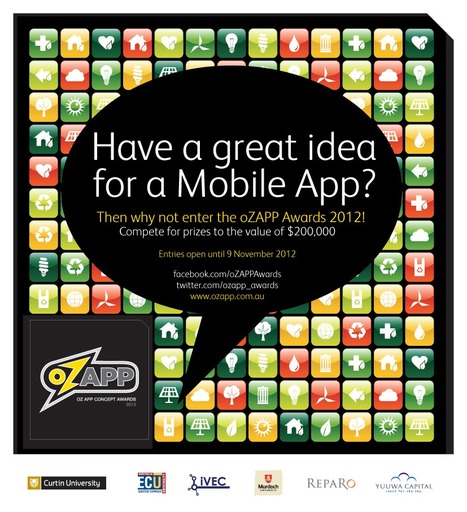 Your new post is loading...
 Your new post is loading...
The course was developed by Jordanne Christie who is the Learning Technologies Specialist in the Centre for Academic and Faculty Enrichment (C.A.F.E.) and she continues to teach one of the sections of the popular elective. The course site is linked to YouTube and Jordanne creates a video for each module to highlight the content, activities, and assignments for the week. Each module requires about three hours of reading, watching, and activity, plus additional time for assignments.
This article defines Twitter tm ; outlines the features, affordances, and common uses; and conceptualizes “tweeting” as a literacy practice, comprising both traditional and new literacies, and impacting both informal and formal learning settings. Also provided is an overview of traditional and new literacies, and insights from a scan of the research literature to date on tweeting as a literacy practice. The authors outline areas for inquiry and the challenges to conducting such research.
Via Martin Weller
Quality assurance approaches in higher education are well-established, but it is important to develop methods which are applicable to the domain of e-learning. The E-xcellence methodology (EADTU, 2009a) was therefore designed to assess the quality of e-learning in distance learning and blended learning contexts. The methodology is based around a set of benchmarks, supported by a practitioner handbook and a web-based ‘QuickScan’ self-evaluation tool. Experience shows that the E-xcellence methodology is particularly valuable for the process of improvement through collaborative internal review.
Via GRIAL Univ Salamanca. Aprendoenred., Mark Smithers
Traditional and digital methods of dissemination clashed recently when a storm over live-tweeting academic conferences blew up in the US. Melonie Fullick looks at the accusation that academics can ‘use’ other people’s work to build up their online brand to benefit their academic career, at the expense of others.
The efforts of each user are no longer trapped on local computers. The entire network can benefit from the location of useful websites. Furthermore, network statistics can be used to highlight the websites that the network values, helping the other users to find useful websites. KF: Diigo has been around for years and is well established in the education sector. The simple idea of social bookmarks is extended with groups, class management capabilties, website highlighting and several other very useful features. Bring an effective metadata strategy to your Diigo collection and you have a rich, searchable, semantically enabled resource set. Draw the creme of your Diigo collection into a curated collection....
Via Nik Peachey, Ana Cristina De Lion
TWITTER TRANSFORMS EDUCATORS
Before the advent of Twitter, most educators I know had limited opportunities to collaborate with colleagues outside their building. Some subscribed to listservs or participated in online forums, but these outlets lacked critical mass; teachers also networked at in-person conferences and training sessions, but these isolated events didn't provide ongoing support.
Enter Twitter. I've heard many educators say that Twitter is the most effective way to collaborate and that they've learned more with Twitter than they have from years of formal professional development. Here are some of the specific ways educators are using Twitter to collaborate: Read more: http://www.pbs.org/mediashift/2012/09/how-twitter-is-reinventing-collaboration-among-educators272.html
Via Gust MEES
THE ISSUE IS NOT whether you are going to become a socially networked university but how soon. Businesses are being transformed into social businesses.
Via Mark Smithers
“Okay, everyone, now I want you to take out your phones or laptops and log on to Twitter.” My students gazed at me wide-eyed as I said those words last semester. One of them started laughing, saying, “Man, I never thought I’d hear a professor saying that.”
Via Mark Smithers
Our Horizon Project research, along with plenty of firsthand experience, has proven that social media is not just a fad. The education world is only beginning to harness its full potential. Social media platforms, such as Facebook and Twitter, provide endless opportunities to communicate smarter, foster close-knit communities, and garner more attention for academic projects. In partnership with the HP Catalyst Initiative, the NMC is hosting a two-part online workshop dedicated to helping educators build a solid social media identity and boost project visibility.
This is no simple matter, in substance or execution, as your personal and professional reputation are now blurred by social media. Plus, at any one time your reputation is a multi-faceted entity playing out across many channels making it even more difficult to track and manage. Let’s explore how it lives on four key levels. 1. REPUTATION WITH YOUR FAMILY (Social Media User) 2. REPUTATION WITH YOUR COMPANY (Social Brand) 3. REPUTATION WITHIN YOUR COMPANY (Social Employee) 4. REPUTATION WITH THE PUBLIC (Social Citizen)
Medical education could benefit from new forms of communication between health professionals made possible through social media - a collection of technologies that use the Internet to connect people. These technologies will be familiar to many and include Twitter, Facebook, LinkedIn and Google+. These social media create connections between individuals and form networks within which information is shared. In this short review I will outline some of the opportunities and challenges facing the use of social media and medical education. I will not focus on any particular form of medical education so the discussion includes undergraduate and postgraduate.
Via Mark Smithers
In a 2010 presentation, Sidneyeve Matrix, Queen’s National Scholar and Assistant Professor at Queen’s University in Kingston, explored how social and mobile technologies could be applied in post-secondary education to engage students and improve...
Social media platforms like Facebook, Twitter, and blogs have transformed communication in our era, and many educators believe they can help deepen and bring new relevancy to student learning in the 21st century. But how are they best integrated with curriculum and instruction? How can teachers use them to create meaningful lessons as opposed to gimmicky diversions? What does a "socially networked classroom" (and school) really look like? In this webinar, two experts on the use of digital technology in instruction will answers these questions and offer practical tips using social media to create thriving collaborative-learning environments.
Register now for this free live webinar.
Webinar Date: Wednesday, August 29, 4 – 5 p.m. ET Can't attend? All Education Week webinars are archived and accessible "on demand" for up to six months after the original live-streaming date.
|
Higher education’s use of social media in the classroom is expanding and changing, with younger faculty members leading the way and influencing how tools such as Facebook, Twitter, and video are used, according to an October 2012 survey.
Listen to enough hysterical warnings and dire forecasts and you’d think that information overload is leading us to some kind of bleak, post-apocalyptic future. KF: Seems if you know what you're doing online you're unlikely to feel that you're being swamped...
Discover all of the Massachusetts Institute of Technology's social media offerings in one place at MIT Connect... KF: MIT demonstrate how to claim the social media space as your global gateway to community, students, government and more...
My friend Inger Mewburn (@thesiswhisperer) recently wrote a thoughtful piece in The Conversation web site entitled Academics behaving badly? Universities and online reputations. For the record I think that the points she made were valid and true but I also think that there is an underlying issue that remains uncovered. Simply put, it is that fact that policies around the use of social media by the academy have, in many cases, been outsourced to individuals who are not members of the academy and do not understand the purpose of the academy. As a result they fundamentally miss the opportunities that social media offer universities in engaging with the wider community. This seems to me to be particularly true in Australia where rampant managerialism associated with the corporate university has led to situation in which ‘brand positioning’ and being ‘on message’ is seen to be more important than concepts of sharing, collaboration and collegiality in knowledge distribution and generation.
A survey of 7,000 high school students by Zinch reveals almost two-thirds of students are turning to social media when deciding which college or university to attend.
The oZAPP Awards is a competition to identify Australia’s best mobile app concepts, with the winners attracting significant resources to build and launch their apps. This website showcases Australian apps, developers and the companies behind them. There is a prize pool to the value of $200,000 directed towards providing the resources for developers to build and launch their apps. This is based on a competition we ran last year called the WApps. Last year, the competition was won by a Curtin undergraduate for Big Help Mob, a volunteer mobilisation tool.
Do you want to know more about incorporating social into your training program? Check out social LMS TOPYX! The influence of technology has impacted all parts of our lives including education in many amazing ways. This infographic from educationalpsychology.net – Twitter 101 is a study on the use of Twitter in the classroom and how it resulted in a positive effect that could change social media and education for good. Read more: http://interactyx.com/social-learning-blog/can-twitter-be-used-in-the-classroom/
Via Gust MEES
Tent is a protocol for open, decentralized social networking. Tent users share content with apps and each other. Anyone can run a Tent server, or write an app or alternative server implementation that uses the Tent protocol. Users can take their content and relationships with them when they change or move servers. Tent supports extensible data types so developers can create new kinds of interaction. Tent needs you, not your money. There are several ways you can help: - Start your own Tent server. - Tell your friends. - Suggest a feature or change in Tent. - Build for Tent. - Ask others to build for Tent
Vitae is committed to enhancing the quality and output of the research base in the United Kingdom, through supporting the training and development of world-class researchers. Social media such as wikis, blogs, social bookmarking tools, social networking websites (e.g. Facebook), or photo- and video-sharing websites (e.g. Flickr, YouTube) facilitate gathering and sharing of information and resources and enable collaboration. Social media is a new form of communication that is changing behaviours and expectations of researchers, employers and funding bodies. The goal of this handbook is to assist researchers and their supervisors to adopt and use social media tools in the service of their research, and, in particular, in engaging in the discourse of research. The handbook presents an innovative suite of resources for developing and maintaining a social media strategy for research dialogues.
What started as a gathering of like minded players in the Serious Games Industry is now a full fledged 3 days conference with over 45 presentations. With the leadership of my co partners from the Serious Games Association (Singapore) and Grid MMS, this event is now becoming an international platform for serious games developers, government agencies and more important for individuals keen in maximising the applications of serious in their daily lives. This conference was developed with the intention to share serious games applications with educators, corporate HR practitioners and medical healthcare practitioners. It will showcase the trends and applications of games in the area of education, patient rehabilitation, advertising media, adult learning and assessment.
|
 Your new post is loading...
Your new post is loading...
 Your new post is loading...
Your new post is loading...









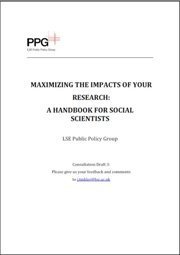

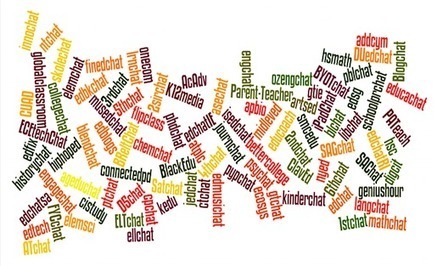

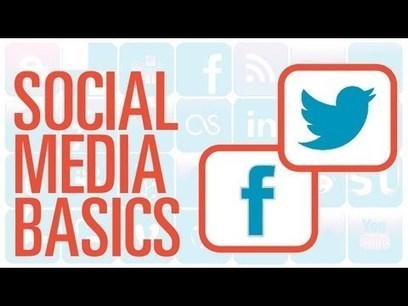


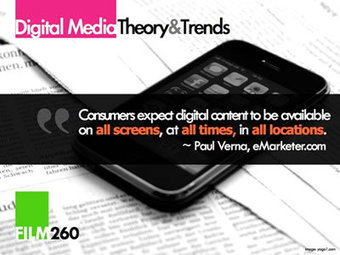



![Students Are Choosing Colleges With Social Media Clout [STUDY] | Social Media for Higher Education | Scoop.it](https://img.scoop.it/qG69NYDv4Nw1xtbxsbHJUTl72eJkfbmt4t8yenImKBVvK0kTmF0xjctABnaLJIm9)
